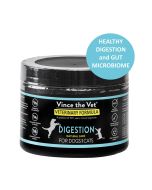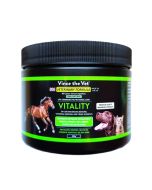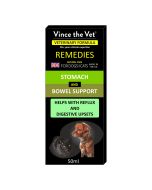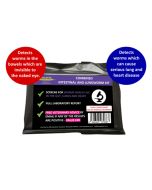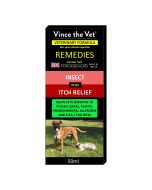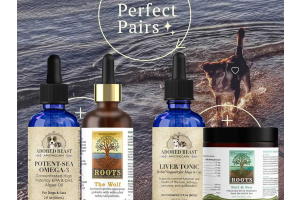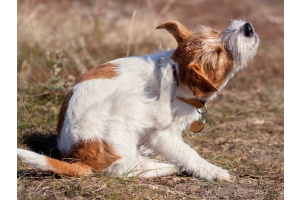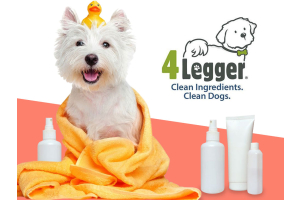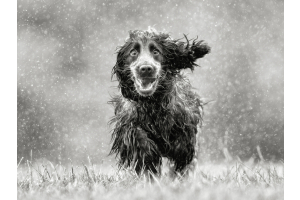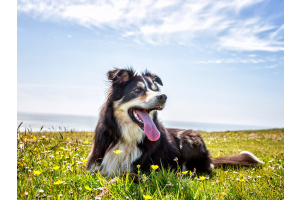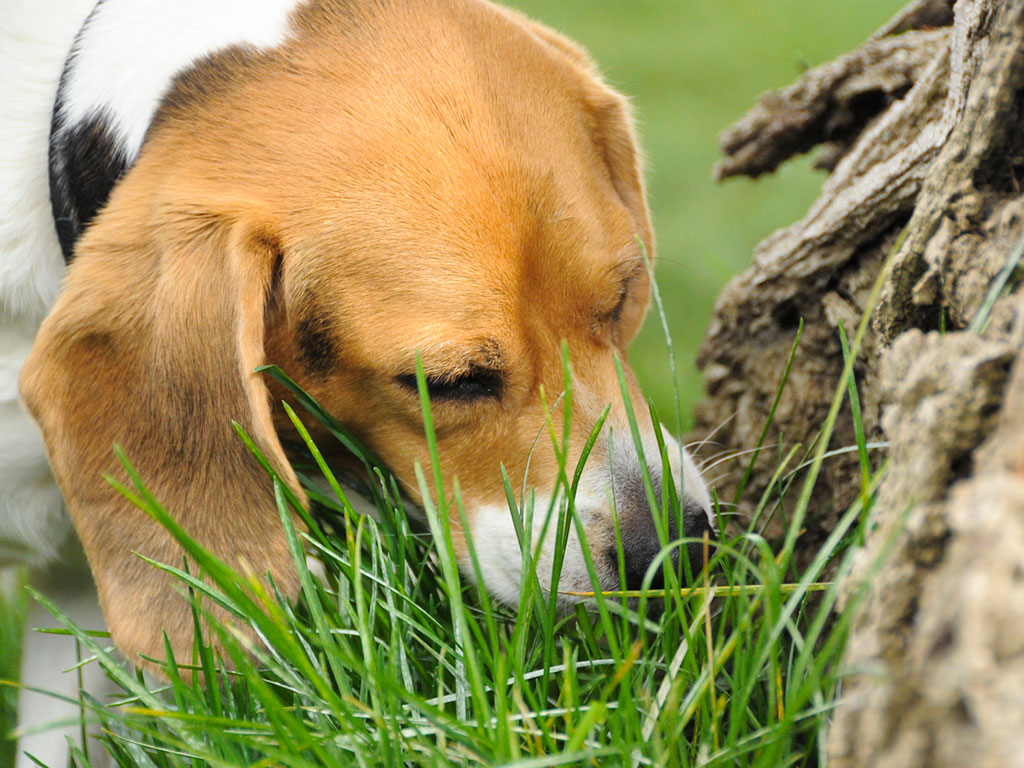
Eating grass is a common behaviour in dogs and cats, and there's no doubt that the occasional nibble is quite normal. When this becomes habitual, compulsive or excessive however, there is usually an underlying reason which needs addressing if this is to be resolved.
In Vince The Vets experience, the commonest causes of this, and measures which most often help are as follows:
1. Gut Flora (Microbiome) Disturbances
Healthy bowels are home to a dynamic array of beneficial bacteria and other microorganisms, which assist in the breakdown of food and the assimilation of the nutrients present.
Disturbances can arise as a result of early life experiences which adversely affect the development of a healthy bowel bacteria population, or subsequent damage to the gut microbiome caused by environmental and dietary chemicals, toxins, drugs such as antibiotics, food additives and other factors.
Signs when this is the case typically include:
- soft or sloppy stools
- excessive wind
- bad breath
- recurrent indigestion
- regurgitation of bile
- acid reflux
- lip smacking
- empty swallowing
STEPS TO TAKE
Key when a disturbed microbiome is present, is to repopulate the bowels with beneficial bowel bacteria. An effective way of doing this for many pets is to give Vince the Vet's DIGESTION (a clinically proven* VETERINARY FORMULA prebiotic) along with a good probiotic, the latter supplies a large number of friendly bacteria to the bowels, while DIGESTION fuels their growth throughout the intestines, to aid normal, healthy gastrointestinal function.
Allow at least 6-8 weeks to guage the effect.
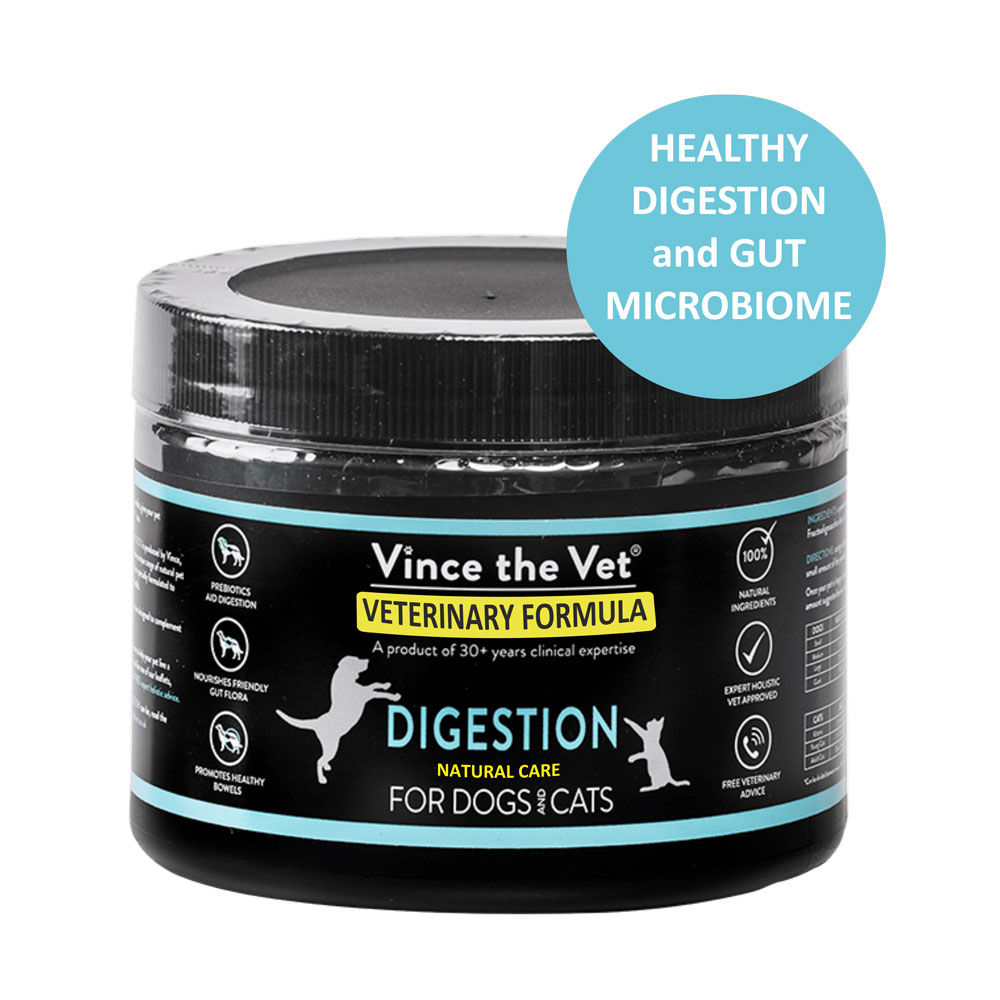
2. A Lack of Specific Micronutrients
Modern day dogs and cats live in a highly polluted world. To cope successfully with daily exposure to countless environmental chemicals (in air, food, water and household products, for example) the body needs a rich supply of nutrients in the diet each day, to support the organs of detoxification and to aid tissue regeneration and repair. If the diet provided does not supply enough of a particular nutrient or nutrients to satisfy the body's demands, an instinctual urge to eat grass and / or soil (also sticks, wall plaster and other inedible materials) can be triggered, so that whatever is missing may be obtained elsewhere.
STEPS TO TAKE
Supplement with Vince The Vet's Vitality to provide more than 80 important vitamins, minerals, trace elements, amino acids, enzymes and other nutrients essential for optimum well-being.
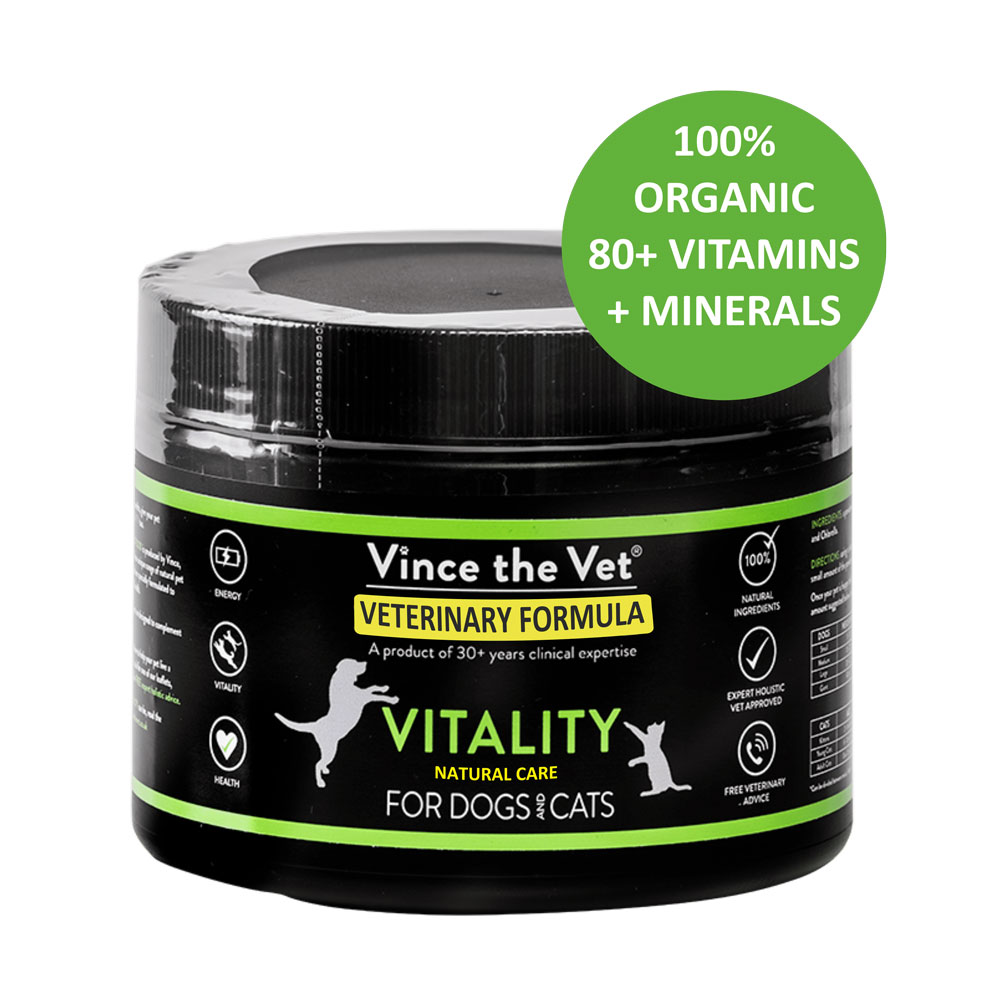
3. Gastrintestinal Discomfort
Common causes of this include:
- acid reflux
- IBD
- parasitic worms (hookworms, whipworms, tapeworms, oesophageal worms and roundworms)
- reactions to food allergens
- dietary intolerances
- autoimmune
- drug-induced inflammation of the bowels
Here eating grass and / or soil can be an attempt to:
- relieve trapped gas
- induce vomiting
- ease indigestion
- soothe an aching abdomen or bowels
STEPS TO TAKE
- Screen for intestinal worms using this Vince The Vet Combined Worm and Lungworm Kit.
- If the results are clear, give 2 -3 drops of Vince the Vet Stomach and Bowel Support 3 times daily on a morsel of food, to ease discomfort, and maintain normal intestinal movements (peristalsis) and tone.
- Check to see if any medication being given has known side-effects on the digestive tract. If this is the case, discuss an alternative form of treatment with your vet.
- If despite all of the above, grass and or soil eating persists, food trials are warranted, along with other appropriate tests to help identify the underlying cause so that this can be successfully addressed.
4. Behavioural
- past trauma (especially relevant in rescue dogs, and those who have either had multiple homes, or a less than ideal start in life)
- food sensitivities and / or intolerances
- gut microbiome disturbances
- digestive upsets
- bowel disease
- carbohydrate and additive rich foods
- lack of adequate physical and mental activity
- persistent pain or discomfort
These can all contribute to a disturbed HPA (Hypothalamic-pituitary-adrenal) axis. This in turn increases stress, lowers the threshold for fight / flight arousal, and alters mood in such a way that compulsive behaviours emerge - which can include eating grass, soil and other materials.
STEPS TO TAKE
- Give 2 -3 drops of Vince the Vet Ultimate Anxiety Relief & Behaviour Improvement three times daily on a morsel of food, in conjunction with positive, reward based training. The remedies reduce stress and increase receptivity to learning new, healthier patterns of behaviour over time. For this reason, allow at least 12 weeks before gauging the effect.
- Check for and address any of the possibilities listed above, which may apply.
NOTE: Feeding a complete, healthy, balanced raw diet (Vince the Vet single protein raw, plus Vince The Vet Digestion, Vitality, Immunity and omega 3 oil introduced one at a time), resolves eating disorders for many dogs.
This blog was written by Vince The Vet.
